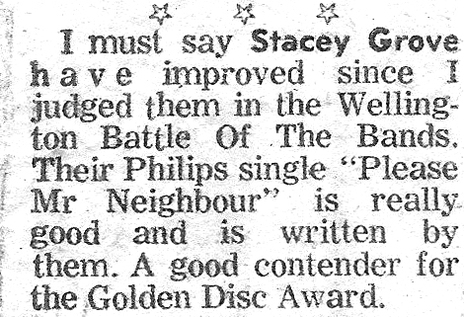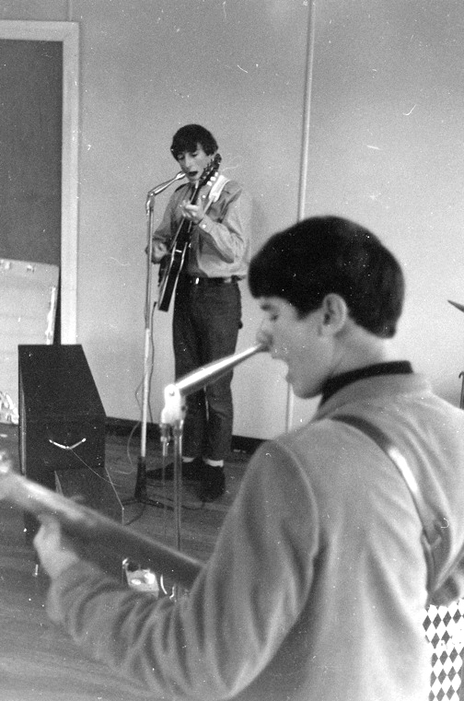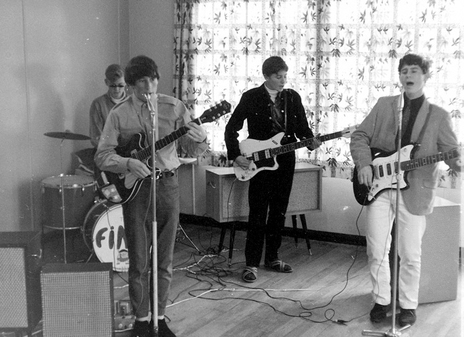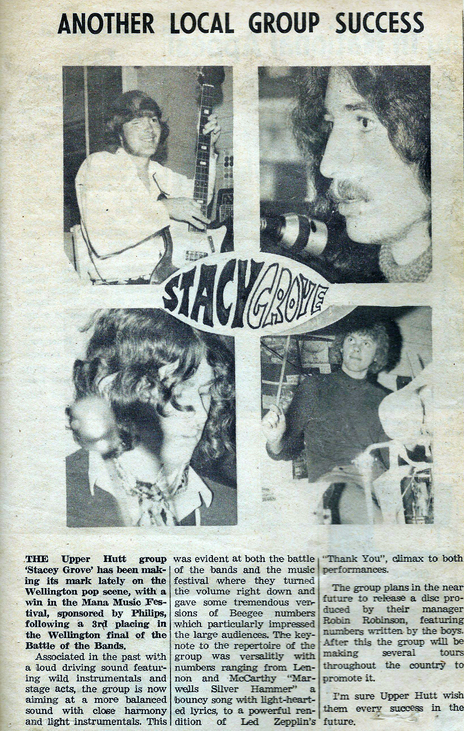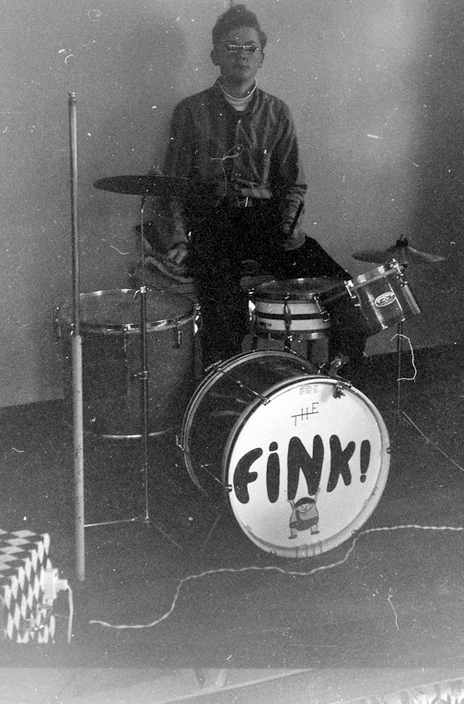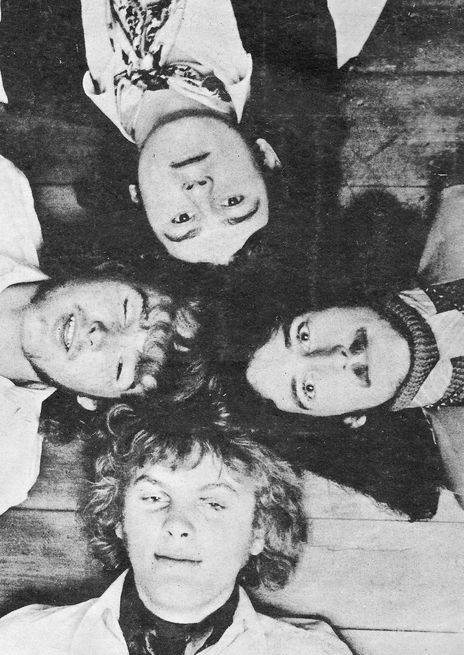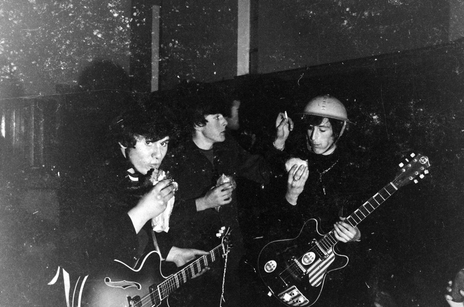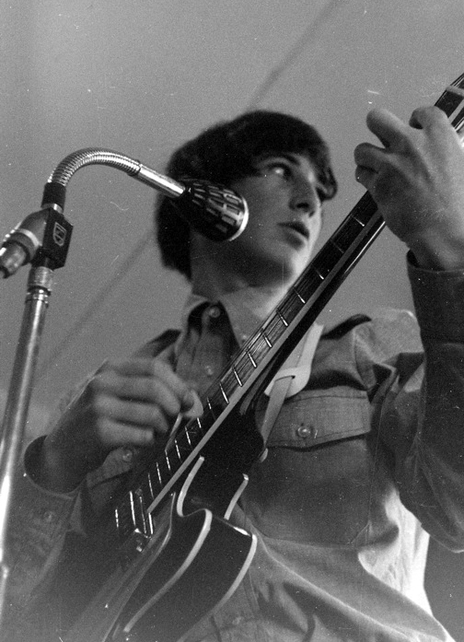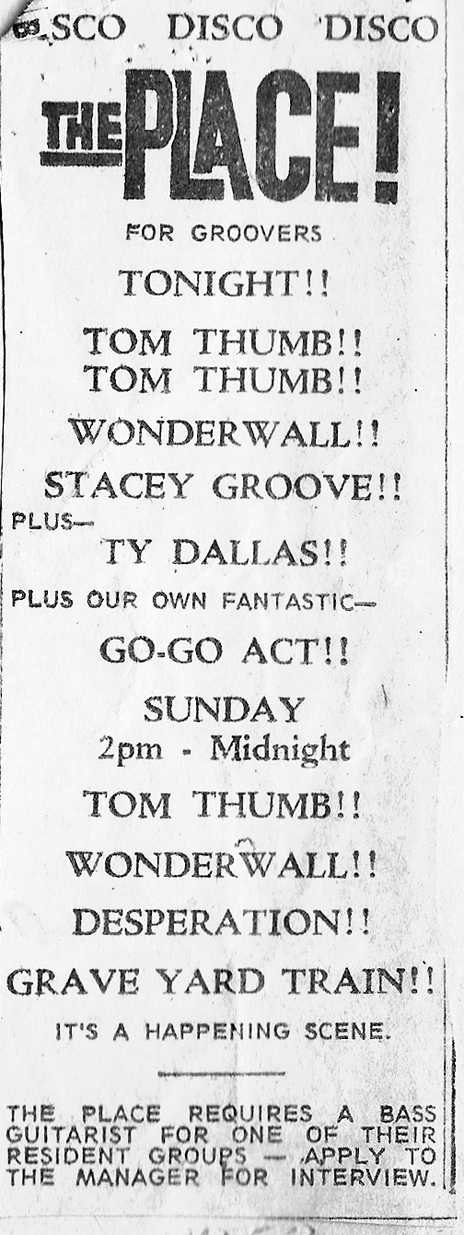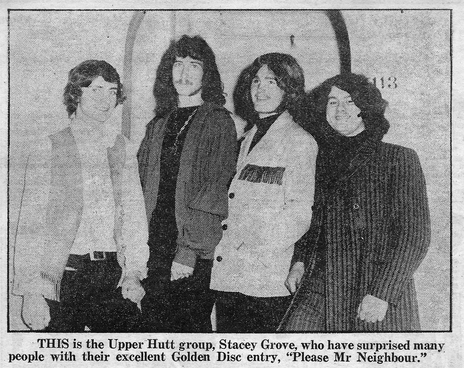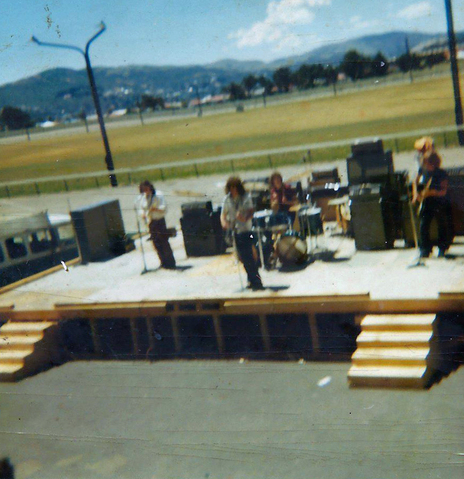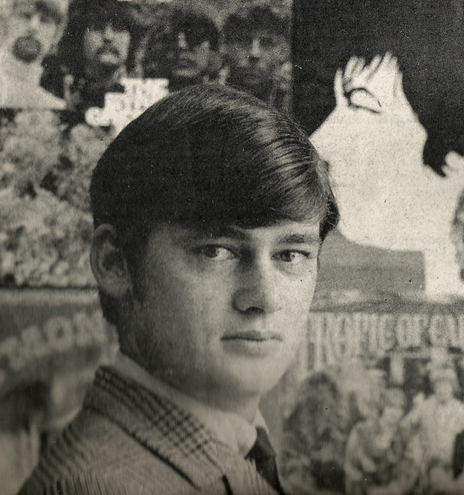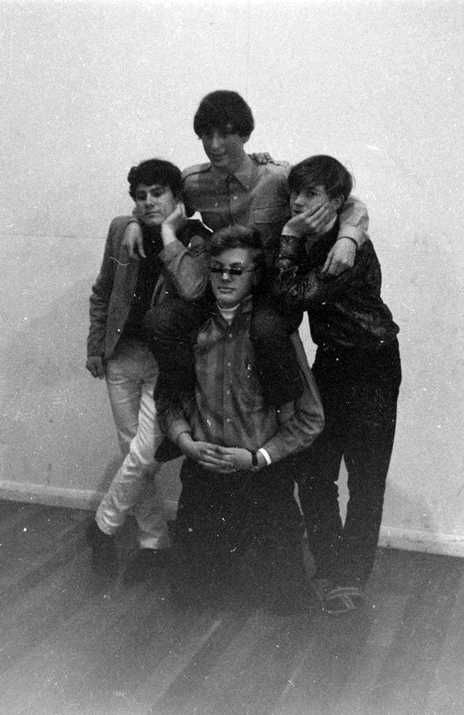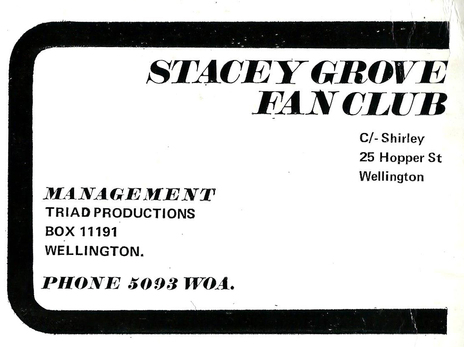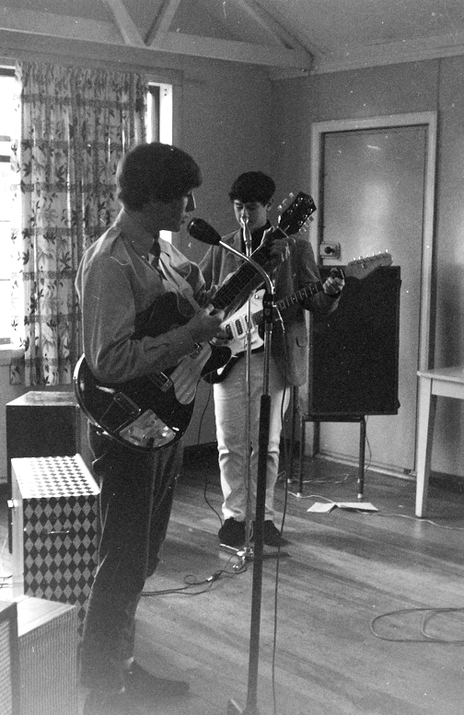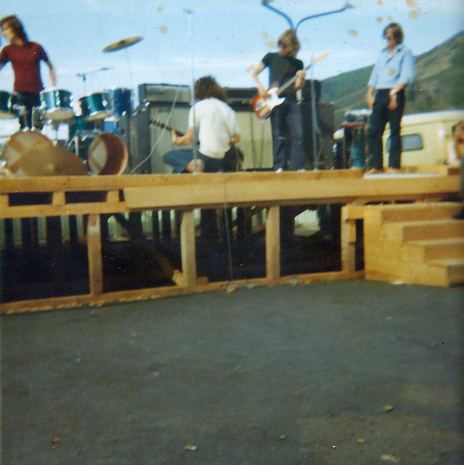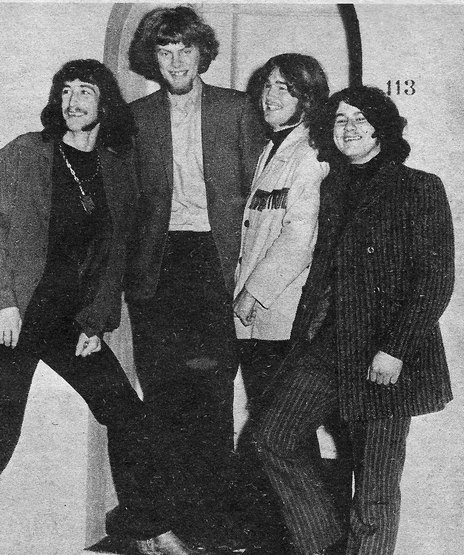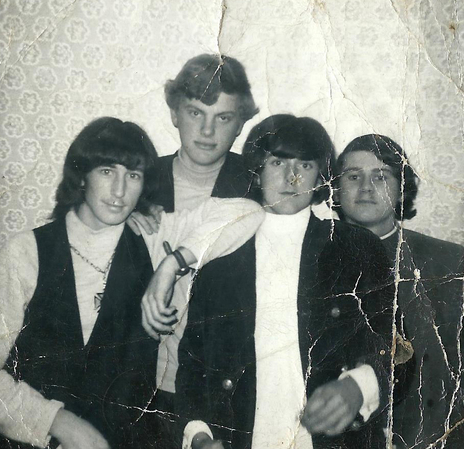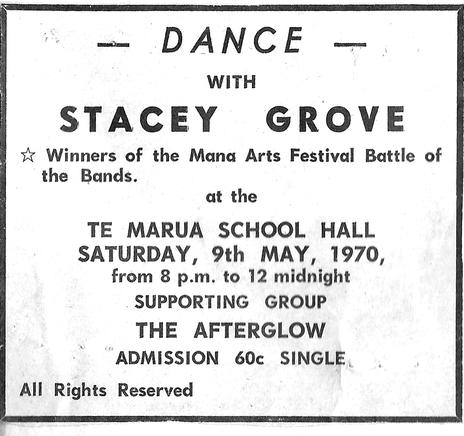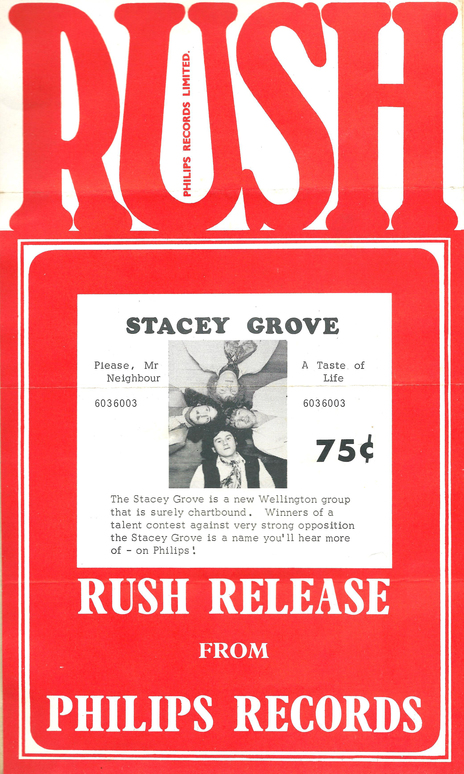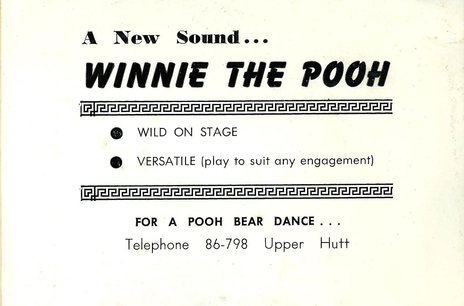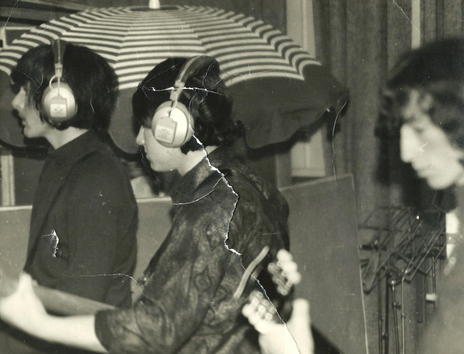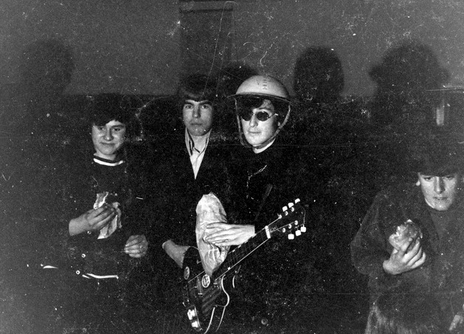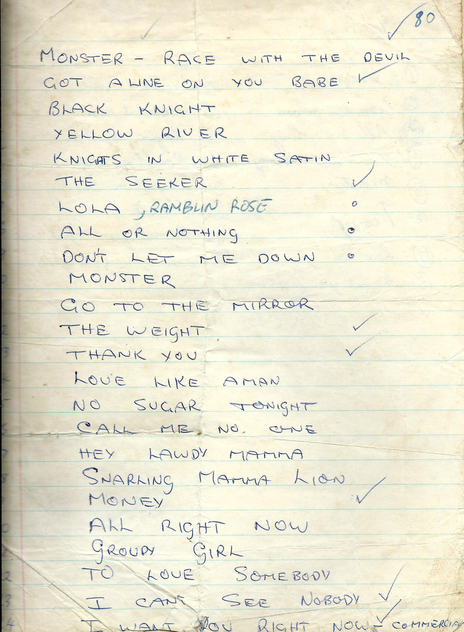“I grew up in a very musical household,” says Stefan Brown. “Both parents and grandparents played and there were huge parties at our house on a regular basis. There were always instruments lying around the house – mandolins, banjos, piano accordions – and really, I just learned by watching and emulating others.”
By age 14 Stefan was proficient on guitar and encouraged Don to also take up the guitar.
Wilson too benefitted from a family musical background. “Dad was a good musician – played piano, violin, and piano accordion (which I still have; it was bought in Italy during the Second World War). My dad played that piano accordion to his comrades while in the Eighth Army in Egypt. He would have great sing-alongs around the piano at home, although he never played professionally. He got me my first guitar for Christmas in 1964.”
Upper hutt heroes The Fourmyula and The Bitter End provided inspiration
With local heroes The Fourmyula and The Bitter End providing inspiration, Wilson and Brown had visions of becoming New Zealand’s Beatles. At the age of 15 they formed, with Brown’s brother Glenn on bass, their first band The Zephyrs – named of course after the car, not gentle breezes.
Brown: “It wasn’t long before we were spending more time practising than studying, our whole lives evolved around the band.” Band practices were held in the Brown’s garage – Brown’s father frowned on modern amplified music and saw their efforts as a hobby rather than anything to be taken seriously.
Wilson: “One of the first songs I remember us practising was a rockabilly version of ‘Froggie Went A-Courtin’!” Brown: “We thought we were the cat’s whiskers playing school dances wearing our matching striped waistcoats that my mum had made for us.” Wilson and Brown tackled songwriting and originals were included in the bands repertoire right from the start.
Lack of band equipment threatened to restrict the band’s ability to perform shows but certainly didn’t stop them, as Brown explains: “We finally scored our first real gig outside of school and were confronted with the problem of having no amp. I noticed that my dad’s new Majestic radiogram had an external jack in the back, which fitted my guitar perfectly. Prior to the gig we spirited the Majestic out of the lounge window and down to the church hall. Alas it struggled under the stress of the show and smoke started pouring from it. We rushed it back home and managed to get it back into to the lounge without being spotted. It was several weeks before dad noticed that it didn’t seem to be working properly!”
As the international hippie vibe crept up the valley the band changed their name first to The Fink, bringing in drummer Kim Priest; and then to Winnie-The-Pooh, with Derek Archer replacing Glenn Brown on bass. Wilson penned a band theme tune of the same name, and the drum kit sported a special Wilson-painted drum skin. Business cards were printed, proclaiming: "Wild On Stage".
Following overseas trends the band began growing their hair dangerously long.
Following overseas trends the band began growing their hair dangerously long. Wilson: “From my bedroom window I could see the girl next door being picked up by her boyfriend, The Bitter End’s long-haired Alan Bateup, in the Bitter End van with the logo painted on the side. Other mysterious assorted long-haired individuals in the van added to the mystique.”
Wilson’s lengthy hair, by now the envy of the senior forms, proved a little much for the school arbiters of decorum and he was suspended just prior to School Certificate exams in 1967. Wilson “I didn’t tell my parents and headed off to school as normal each morning. I had a bunch of mates keep lookout for me and wore my hair tucked under my cap.” Despite sneaking back in for a staggering four extra months he was finally collared by the Headmaster and expelled for good.
On leaving school, the bandmates all took basic jobs to fund the purchase of instruments and amplifiers. Brown: “Our whole focus in life was ‘making it’ as musicians. Work for us was just a means to get money to purchase more band equipment. Even as a schoolboy I spent my entire holidays working in a woolshed in Wanganui. I remember the thrill of buying my first Jansen 75 valve amp. Once out of school I made a half-hearted attempt at a printing apprenticeship but really, being in a band was all I cared about.”
With Archer being enticed to join the Lost Souls, the addition of bassist Mark Jones was accompanied by a name change to Stacey Grove.
Stacey Grove practised relentlessly in a local church hall. Wilson: “We used to deliberately leave the hall doors open – it proved to be a highly successful way of attracting girls with many band practices turning into parties!”
Brown: “We were pretty well set but just needed a way of getting our gear to gigs. Up stepped our school friend Ronald Barré who’d persuaded his dad to lend him his Jowett Bradford van. This arrangement didn’t last long as we managed to break the back axle on our second gig and poor Ronald was banned from ever using the van again.”
The band picked up regular gigs in local halls – this was of course in the days of 6 o'clock closing and the pub circuit had yet to come into being. Despite being “underage” gigs there was plenty of alcohol available on the sly. Brown: "Upper Hutt was what you might call 'desperate territory'. There was no shortage of louts and layabouts looking for a good time. It was probably just the pouring of all our energy into trying to make it as a band that stopped us from being the same.” Wilson: “There was often a fair bit of aggro at these shows – bikies fighting V8 boys mainly, and we certainly knew how to look after ourselves. Generally people were reluctant to harm the band, although we needed to use our heavy mic stands to protect ourselves occasionally.”
former Philips A&R man Rob Robinson spotted them, and added them to his new management company.
Wainuiomata based former Philips A&R manager/ producer Rob Robinson spotted them, and added them to his new management company, which already represented a stable of artists that included The Chicks.
Robinson entered the band into several regional Battle Of The Bands events. The Battle Of The Bands shows were big news on the Wellington region music calendar, with the finals being held at the Lower Hutt Horticultural Hall. Stacey Grove often found themselves up against friends in The Lost Souls, Natural Gas, and Cellophane.
Violence haunted even some of these shows. One regional final turned particularly nasty. Brown: “A Battle Of The Bands show in Cannons Creek was positively frightening. We were playing in a hall on a stage riser and a fight quickly turned into a full-scale raging battle. We all crawled under the riser and lay on our stomachs for what seemed like an hour. When we finally emerged the floor was a sea of broken glass and all our instruments had been totally smashed.” Wilson: “The Cannons Creek battle happened I think because we won the contest and the hall was packed with supporters of the local Porirua group, who didn’t agree with the judge’s decision. Once we managed to get out of the hall I remember running up the road for my life, hotly pursued by an angry mob!”
Appearances in these competitions added to the band’s burgeoning reputation. Regular gigs were scored at “underground” Wellington nightclubs The Place in Willis Street, Ali Baba’s in Cuba Street and Lucifer’s in Dixon Street. Although less than 40 kilometres from Upper Hutt, Wellington represented a huge step up for the band. Brown: “If you got a gig in Wellington it was a real sign that you’d made it.”
Wilson: “By now we were very much concentrating on emulating the exciting UK and US rock scene. Our repertoire included tracks by Deep Purple, Jimi Hendrix, MC5 and The Small Faces, who we’d seen on their tour with The Who. The Who’s instrument smashing impressed us and we tried a little fake smashing at our gigs at The Place, but the reality was our instruments were too precious and expensive to destroy. We weren’t so careful at Battle of the Bands gigs though, where the promoters supplied band equipment! We were spurred on by the challenge of matching Tom Thumb who were very much kings of the roost at The Place.” Brown: “I did get a little carried away at The Place and sadly broke the neck of my precious Jansen Invader; what I’d give to have that guitar today.”
Stacey Grove became renowned for their stage show. They occasionally played in dressing gowns. Wilson: “We were so poor that we couldn’t afford to get back to Upper Hutt after some of our shows so we’d end up sleeping in the Wellington Botanical Gardens. We’d bought the dressing gowns to keep warm.” Other tactics to impress the crowd included bassist Mark Jones removing his glass eye and using it as a pick, and later keyboard player Gary Stokes taking out his false teeth. Wilson played his guitar lying on his back and did flips, with a mattress on stage to cushion his landings.
It was an unforgettable time for the band. Brown: “We really were growing up fast. We often played before Tom Thumb at The Place then took in their show and came back on again for a second set, not finishing till 3am. From there we went to Carmen’s for coffee.”
To impress an audience, the bassist would take out his glass eye, the keyboardist his false teeth.
Robinson used his connections to get the band a recording contract with Philips and had them in the studio in 1969 to record their one and only single, ‘Please Mr. Neighbour’ b/w ‘A Tale of Life’, both originals by Wilson and Brown.
“Robinson was a great producer,” says Wilson, “and was assisted by engineer Frank Douglas. When we turned up at the EMI studios in Wakefield Street we were amazed to see a full orchestra ready to go with the parts to our songs already written out.” Two tracks recorded at an earlier session, ‘Strollin’’ and ‘Death Dream’ were never released and are presumed lost.
The band made the occasional foray out of Wellington but gigs were restricted mainly to the lower half of the North Island, including venues in Palmerston North, Taihape and at Ruapehu’s Ski Lodge.
Late 1970 saw another line-up change with drummer Kim Priest leaving to join the Lost Souls, to be replaced by Murray Brookie. Wilson: “Brookie was a crazy Keith Moon–type character with huge energy and an infectious laugh who sadly OD’d in a manner similar to his idol.” His time in the band was brief and Mike Phillips in turn replaced him.
With Robinson moving away from the music business following marriage to Yvonne Douché, sister of Marmalade Studio’s Rocky Douché, the band began to flounder a little. Wilson: “Drummer Mike Phillips (now deceased) went off to join Creation, and Pixie (Mark Jones) departed as well. This pretty much left Stefan and I without a band. We decided it was simpler to keep it that way and so the Ebony duo was born, though initially we were just known imaginatively as Don Wilson and Stefan Brown!”
Wilson and Brown did finally realise their dream of fame (if not fortune) with Ebony, but that’s another story.
